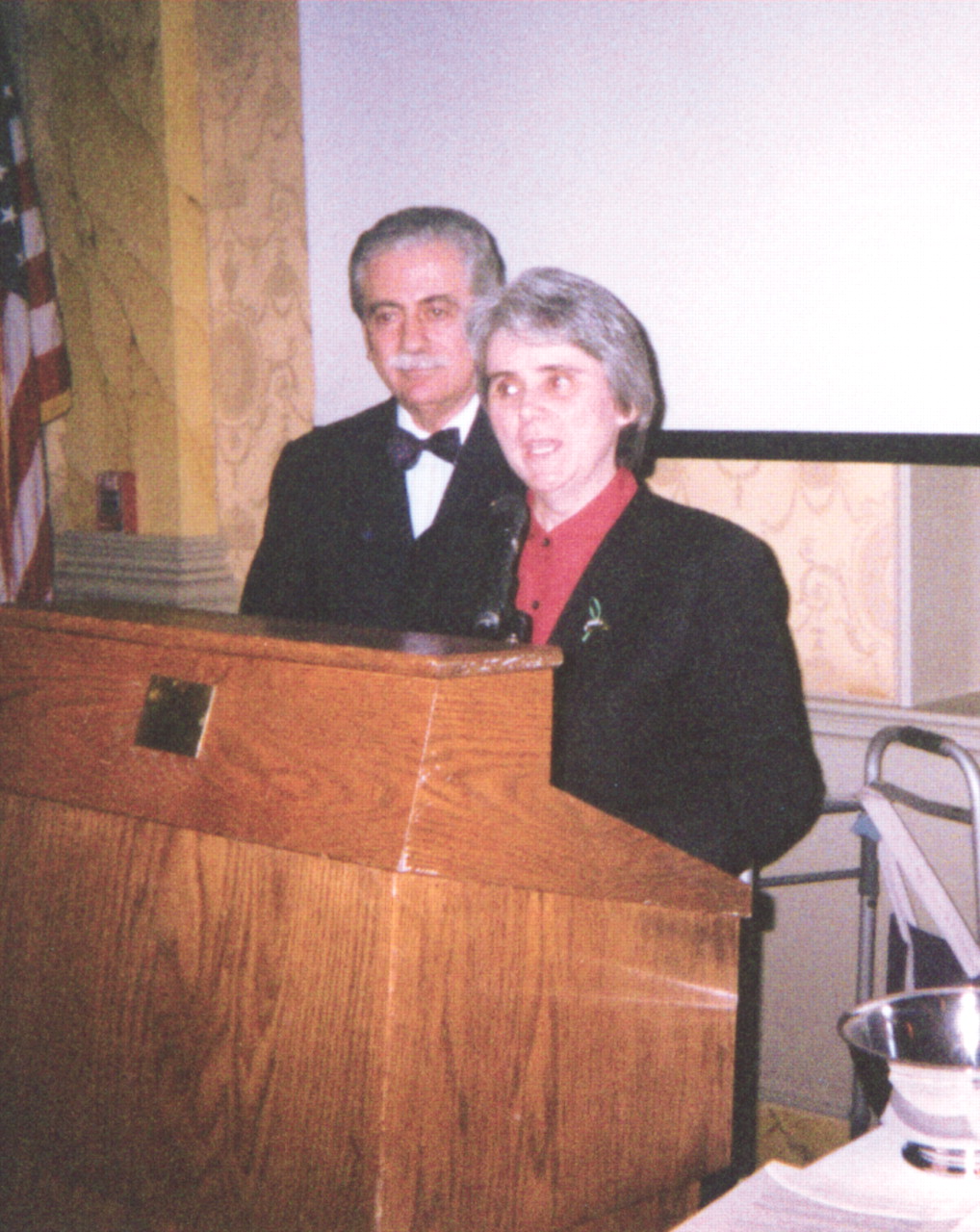The untimely death of Sen. Paul Wellstone while he was campaigning for re-election in Minnesota in late October has left the mental health community reeling. The Washington Psychiatric Society (WPS) decided to do something positive with its grief by creating the Sen. Paul and Mrs. Sheila Wellstone Mental Health Visionary Award in memory of the years of hard work that he and his wife had devoted to mental illness causes.
The first award was presented last month to Ellen Gerrity, M.D., the senator’s senior mental health policy advisor, who accepted the award posthumously on behalf of Wellstone and his wife. The presentation was made by Eliot Sorel, M.D., chair of the WPS Partnership for Parity Working Group and former WPS president.
“The WPS plans to present the award annually to a well-deserving advocate,” Sorel told Psychiatric News, “and it will bear the names of Sen. and Mrs. Wellstone in perpetuity.”
After accepting the award, Gerrity told those in attendance, “Through this award, the WPS has given solace to his staff and family and all those who loved him, because of its focus on the future. . . . Among the many painful ways we are experiencing grief is the great concern that the hard work of Paul and Sheila might not go on. We ourselves as staff are suddenly facing the necessity of making new choices about how to carry on this work.”
Gerrity told a powerful story illustrating that the senator’s devotion to those often overlooked by society was never a calculated political position to win votes. A few years ago the National Mental Health Association had invited him to visit the Tallullah (La.) Corrections Facility, which at the time was under investigation by the Department of Justice for alleged abuse of youth there, she said. As the entourage toured the newly painted facility and noticed the boys’ new sneakers and plentiful food, Wellstone broke away to sit down with them and ask how they were doing. Next, he asked to see where the boys with mental illness received care. As they walked across the compound to that area, a boy started running toward him, saying “I want to talk to you.” As stunned staff officials and reporters looked on, the boy said that what Wellstone had seen so far was a sham and that the young inmates were usually treated very badly, including being beaten. The result was that Wellstone kept an eye on the institution and in March 1999 introduced the Mental Health Juvenile Justice Act. He reintroduced the bill last February (S 1965), and it is now in the Senate Judiciary Committee.
“Paul restored hope to the great and the powerful; to the vulnerable, the poor, the ill, to those who have no voice; and to those with mental illness and those who take care of them,” said Gerrity.
“In Minnesota at the memorial service, 30,000 of Paul’s closest friends—and I say that truthfully—came with crushed hearts and left with the vision of Paul and Sheila and the restored hope that with their own dedication and commitment, their work will go on.”—C.F.B. ▪

